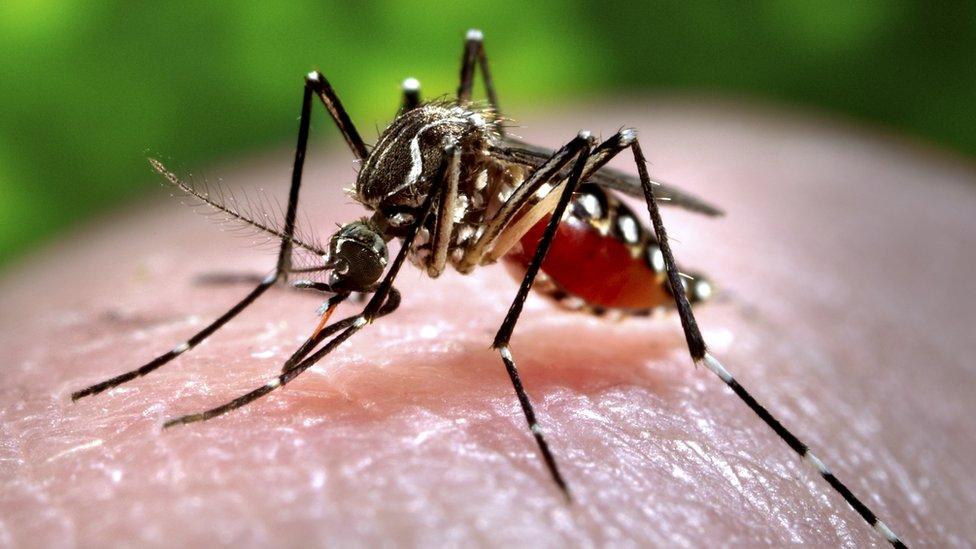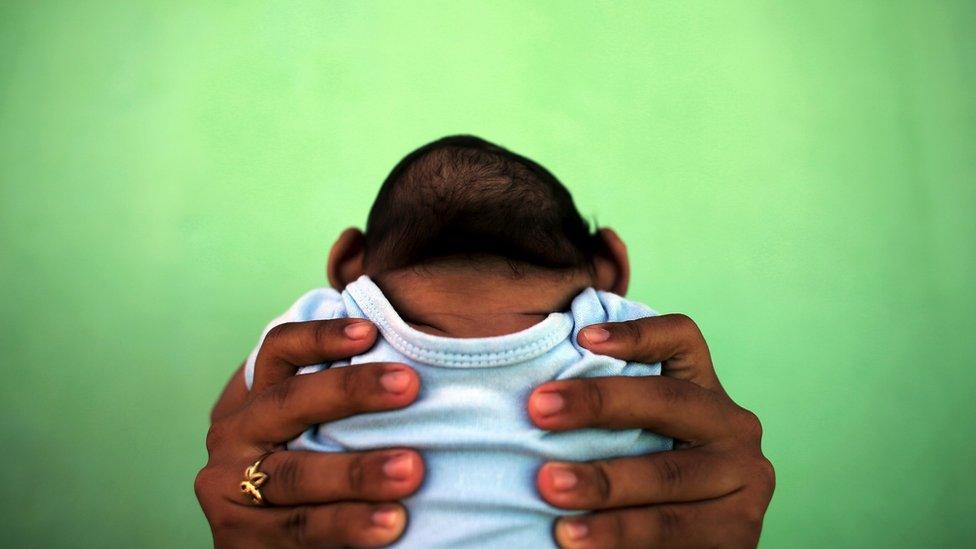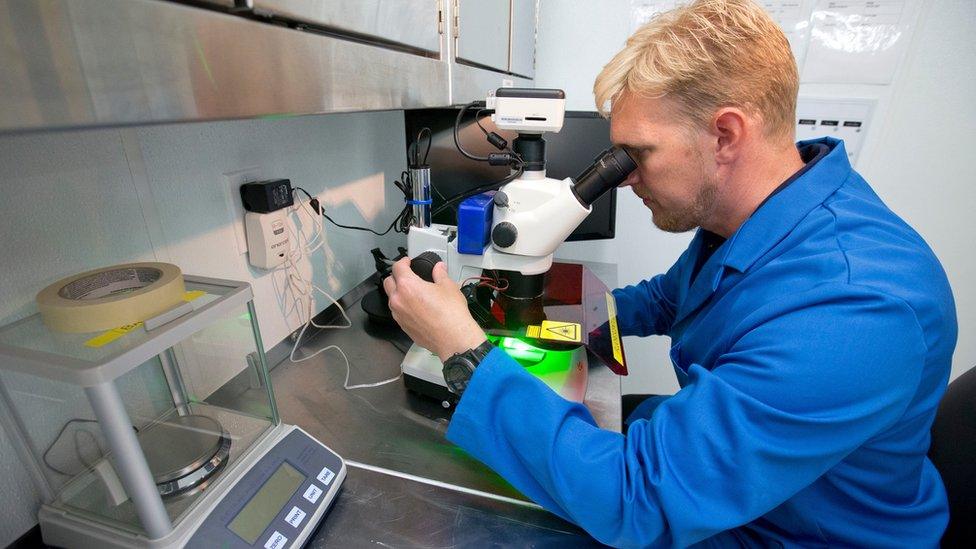Florida polls split on GM mosquitoes
- Published

Zika virus is transmitted by the Aedes aegypti mosquito
Voters across one Florida county have signalled their approval for releasing genetically modified mosquitoes in a bid to fight Zika virus.
But in a separate poll, the town where officials plan to carry out a scientific trial, voted to reject the proposal.
The planned release is being seen as an important test for the technology's acceptance in the US.
Florida has reported more than 1,100 cases of Zika this year.
British biotech firm Oxitec plans to evaluate the effectiveness of their engineered mosquitoes for combating the virus.
They want to release male insects across a 17-hectare region of Key Haven, a small suburb located on an island on Florida's southern tip.
Zika is transmitted by the Aedes aegypti mosquito. The idea is that Oxitec's male mosquitoes (which do not bite) mate with wild females, but genetic modification ensures that any offspring do not survive until adulthood.
Successive releases across the neighbourhood should cause Aedes aegypti populations to crash.
The non-binding poll in Monroe County, which covers the Florida Keys and a large part of the Everglades National Park, asked: "Are you in favour of the Florida Keys Mosquito Control District conducting an effectiveness trial in Monroe County, Florida, using genetically modified mosquitoes to suppress an invasive mosquito that carries mosquito-borne diseases?"

In South America, Zika has been linked to birth defects, including microcephaly
Voters in Key Haven were asked specifically about the release of GM mosquitoes in their town.
About 58% of voters across Monroe County favoured the trial, external. But in Key Haven, some 65% opposed the release.
Now, the results of the November 8 poll will be put to board members in charge of the Florida Keys Mosquito Control District. They will use the results to decide whether to proceed with the scientific trial at a meeting on 19 November.
Dr Derric Nimmo, who has been leading Oxitec's proposed trial in Key Haven, told BBC News: "Key Haven was chosen about four years ago, based on the fact that it's surrounded by water and it's an almost perfect scientific site where you have a control area where you don't do any releases, an area where you can do releases, and a buffer zone in between.

Dr Nimmo is heading up Oxitec's effort in the Florida Keys
"You don't want wild female mosquitoes coming into the area, because they will affect the quality of the results."
Oxitec has previously conducted five trials of its technology in the Cayman Islands, Panama and Brazil, where Dr Nimmo says, the company achieves reductions in mosquito populations of 90% or more.
Aedes aegypti is an urban mosquito that can breed in bodies of standing water as small as a bottle cap. Its larvae can find refuge indoors, beyond the reach of insecticide spraying programmes.
But a proportion of local residents wanted the trial cancelled; they have been concerned about potential unanticipated consequences of releasing lab insects into the wild.
Mila de Mier, a Florida realtor who has founded an opposition group called Never Again, told BBC News: "This technology is treated as an animal drug, but we believe it should be treated as a human drug."
She added her concern that "when you reduce the population of Aedes aegypti, another aggressive mosquito species could come in and become established - like the Asian tiger mosquito".
But Dr Nimmo stressed: "We've had six years of releases, involving millions of male mosquitoes, and there have been no reports of any adverse effects."
"It's important we're as transparent as possible... we've been trying to give people the facts and information so they can make an informed choice."
Follow Paul on Twitter., external